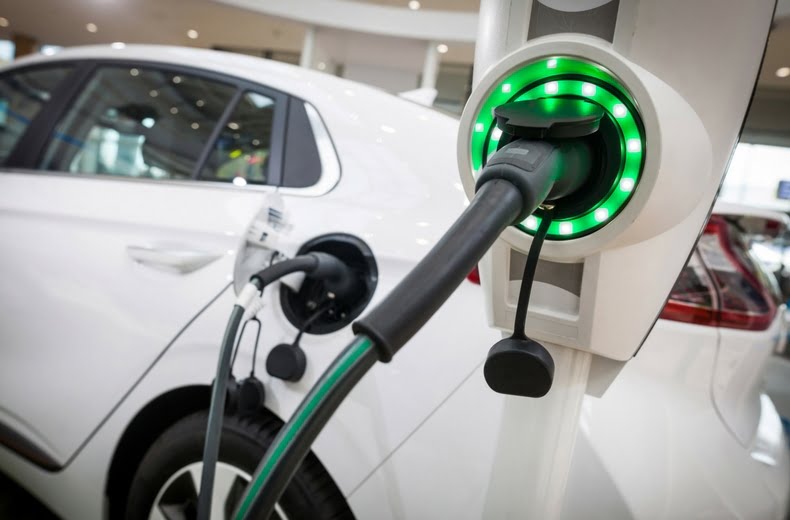Senate committee’s recommendations for increasing the uptake of electric vehicles in Australia were “shallow and weak”, according to one of the independent senators involved in writing its report.
The Select Committee on Electric Vehicles report, tabled last week, found that Australia lags behind the rest of the world on electric vehicle (EV) uptake due to a “relative absence of overarching policy direction from Australian governments”, with higher costs, concerns about driving range, a lack of recharging infrastructure and limited model availability.
But the watered-down final recommendations included little in the way of government funding, incentives or strong targets after these were rejected by participating government and Labor senators, much to the annoyance of the committee’s cross-benchers.

If the government does not step up and take action to support the uptake of electric vehicles, it risks missing out on a range of economic and environmental benefits, the committee found.
“In the absence of appropriate regulatory settings, Australia’s near-term EV uptake is likely to be modest. Slow uptake will continue to result in EV manufacturers not prioritising the Australian market and fewer EV models being available to Australian motorists,” the report said.
“It will also delay the realisation of substantial economic, environmental and health benefits, and risk seeing opportunities for economic development pass by,” it said.
While there were 17 million light passenger vehicles in Australia, only 7,300 are electric, and these models are “generally more expensive” than overseas markets. This is due to “less stringent Australian vehicle emission standards, lack of direct incentives for consumers to choose EVs and absence of clear federal government policy”, the senators found.
But the recommendations included in the report have proved contentious among the participating members, with independent senator Rex Patrick labelling them a “lost opportunity to accelerate the uptake of electric vehicles in Australia and to exploit opportunities for Australians industry in this growing worldwide market”.
The final report included few recommendations focusing on government monetary support, incentives or targets.
Instead, it primarily recommended the creation of a national electric vehicle strategy to “facilitate and accelerate EV uptake and ensure Australia takes advantage of the opportunities and manages the risks and challenges of the transition to EVs”, backed by an intergovernmental taskforce.
The committee’s report also called on the government to set a target for its own fleet of vehicles, work with industry to develop a plan for the rollout of a national public charging network and to set more stringent vehicle emissions standards.
But the lack of stronger recommendations to support the uptake of electric vehicles proved frustrating for the committee’s own chair, independent senator Tim Storer.
Senator Storer said he presented the other Senators with a “fiscally-balanced package of measures to support the transition to EVs in the short-to-medium term, while addressing longer-term challenges posed by the emergence of EV technology”. But these were rejected by the government and Labor senators.
Senator Storer urged the government to establish national targets for electric vehicles to make up a quarter of new light passenger motor vehicle sales by 2025, and 20 percent of new metropolitan bus sales.
His own recommendations included allocating $390 million in co-funding for state and territory governments to temporarily reduce motor vehicle registration and stamp duty for new and existing electric vehicles, a $300 million grant fund for charging infrastructure and a $300 million manufacturing grants scheme for domestic electric vehicles.
Senator Rex Patrick, who was also on the committee, backed these extra recommendations and slammed the watered down original report.
Greens senator Janet Rice also criticised the final recommendations produced by the committee.
“It is unfortunate that the committee recommendations do not reflect much of the testimony heard by the inquiry about the speed and urgency required for action if Australia wants to play a meaningful role in the future of the electric vehicle industry. The weight of evidence received by the committee made it clear that the electric vehicle revolution is already underway and it is only a matter of time before they are the dominant vehicle technology,” Senator Rice said.
Labor committee members said policies and incentives would be included in the national strategy and this is why stronger recommendations were not included in the report.
“Some may accuse the Committee of a lack of ambition for not doing so, but, although the Committee advises on these issues in the report, it was not in a position to develop the comprehensive national strategy that is required,” Senator Kim Carr and Senator David Smith said.
“That is a task for the national government, engaging with industry and the wider community. This engagement will be fundamental to achieving a just and effective transition to new forms of automotive and other transport propulsion,” the senators said.
“This report recommends that the Commonwealth government take the lead in developing a strategy for the introduction of electric vehicles. It urges the government to do what is currently not being done.
That is, to take a coordinated, integrated and national approach that will not only begin the transition to electric vehicles but also initiate a manufacturing strategy to realise the industry growth and job opportunities the transition can offer.”
The only Coalition member of the committee, Liberal senator Dean Smith, did not provide any additional commentary.
Do you know more? Contact James Riley via Email.

